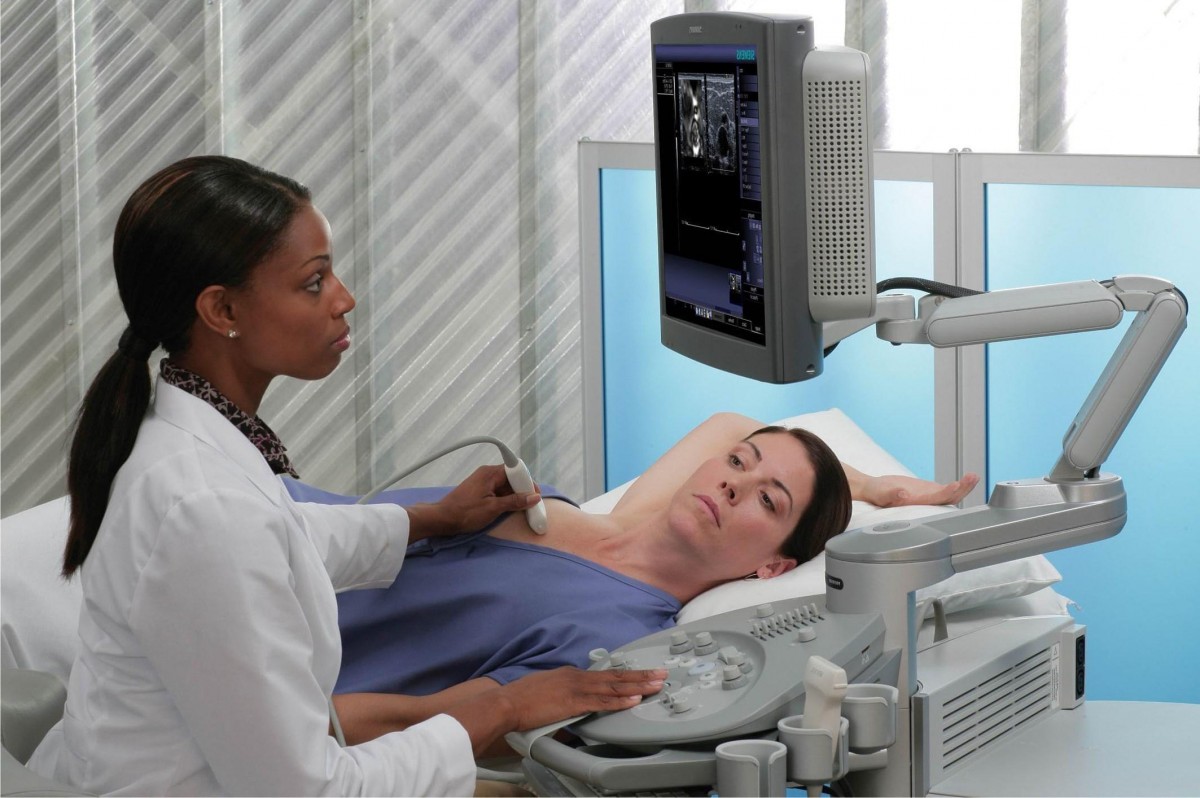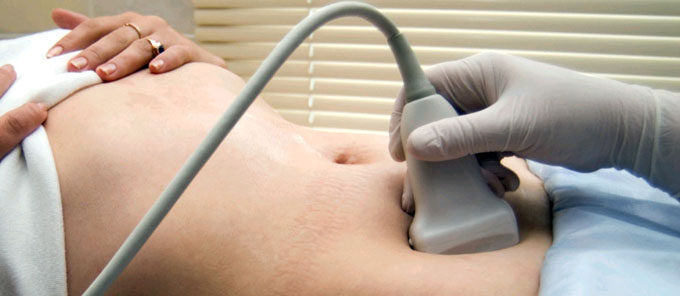
unlicensed room and board california
м. Київ, вул Дмитрівська 75, 2-й поверхunlicensed room and board california
+ 38 097 973 97 97 info@wh.kiev.uaunlicensed room and board california
Пн-Пт: 8:00 - 20:00 Сб: 9:00-15:00 ПО СИСТЕМІ ПОПЕРЕДНЬОГО ЗАПИСУunlicensed room and board california
Florida: A media report stated that in 2012 the licensure agency received more than 200 complaints about unlicensed activity and confirmed 62 were unlicensed--a 60% increase since 2010. Multiple key informants also stated that a Dom Care operator with the maximum of three individuals may be considering adding other residents or has possibly tried it before, therefore interviews with some Dom Care Operators may yield a unique perspective on the motivations to operate unlicensed care homes. Key informants in metro Atlanta also indicate that the state conducts interviews with residents during investigations and closures of unlicensed home to gain a better understanding of how individuals end up in these homes. In 2005, Pennsylvania state regulations for personal care homes were changed, reducing the minimum number of residents a personal care home could serve from seven to four. Renew Online (PHY license Only) NOTE: If the facility license expired more over one year ago, you are not able to renew your license online. Key informants from Georgia and Pennsylvania shared examples of efforts to increase awareness of unlicensed care homes through education or marketing for the general public or the agencies they involve in addressing unlicensed care homes. This section describes illegal contracting and the programs CSLB has in place to combat the activity. The Allegheny County PCRR has sent letters to hospitals and their discharge planners informing them about known illegally unlicensed personal care homes to which they should not discharge patients; however, according to two key informants, discharges to these homes have continued. Several key informants reported that unlicensed care home operators "troll" the psychiatric wards of facilities like Grady Memorial Hospital, looking for residents. This makes it difficult, if not impossible, for residents to leave the facility, a difficulty sometimes exacerbated by limiting residents' access to their funds, to the facility phone, and, as noted above, by locking residents in their rooms or the facility. Strategies for identifying and addressing quality in legally and illegally unlicensed care homes appear to differ across states. There appears to be a general lack of recognition about the extent of the problems with unlicensed residential care homes in the United States. We are here to support operators who desire to provide safe and affordable housing for the people living in their facilities as an alternative to homelessness and institutionalization. He argued that comprehensive emergency management planning and proactive practices were needed to protect those at risk in unlicensed homes. In addition to the aging population, many key informants agreed that the lack of affordable supportive housing options for individuals with a mental health diagnosis is also a concern for Allegheny County and surrounding counties. Multiple interviewees suggested that it was important to quickly involve code enforcement and local health departments in efforts to close an illegally unlicensed personal care home. Room and Board Homes - California Room and Board Advisory Coalition Key informants did not offer any information on potential ways to identify unlicensed care homes or existing databases of these places. This lack of knowledge contributes to the need for the government and policy makers to have a better understanding of unlicensed care homes. Section 1750.1 is the statute governing the duties that unlicensed dental assistants are allowed to perform. licensed board and care beds in California. In addition, one key informant stated that penalties for operating unlicensed care homes are similar to only a Class C offense, which is "equivalent to fishing without a license." We conducted most key informant interviews in Durham, with some additional interviews across the region, including Raleigh. Massachusetts exempts small private-pay homes from licensure. Key informant interviews were conducted in three communities across three states: Allegheny County, Pennsylvania; Atlanta, Georgia; and Raleigh/Durham, North Carolina. Barry, R., Sallah, M., & Miller, C. (2011). Tenants may have a diagnosis of mental illness and are seeking a shared living arrangement. One state key informant stated that her office receives one to two calls a month pertaining to unlicensed adult care homes, but she noted that these calls are sporadic. (2013). We targeted site visits in communities that varied according to whether the state: (1) has legally unlicensed care homes; (2) has a list of unlicensed care homes; and (3) ranks among the highest or lowest in HCBS waiver expenditures. Interview results indicate that police may also be helpful in identifying unlicensed care homes, but the extent of that help may vary from state to state and across communities within states. Thus, unlicensed care homes close and leave one area of the city, but reopen in another area, contributing to the difficulty of identifying and permanently shutting down these places, while also disrupting the residents' access to day services and other community-based sources of support nearby the original care home location. A Description of Board and Care Facilities, Operators, and Residents - ASPE Strategies to Address Unlicensed Care Homes. Some SMEs noted that many licensed facilities are unwilling to admit or retain individuals with severe and persistent mental illness, intellectual disabilities, or challenging behaviors. These cookies track visitors across websites and collect information to provide customized ads. The first conviction in Florida is a felony; in Georgia, first conviction is a misdemeanor, second is a felony. A separate search of a few state Attorney General (AG) reports of unlicensed RCFs identified six cases of successful prosecutions in New York, Nevada, Florida, and California for operating an RCF without a license--and, in several cases, for gross neglect. The cookie is used to store the user consent for the cookies in the category "Analytics". A core pattern of exploitation described in interviews included the operator of unlicensed homes finding vulnerable individuals who need housing and supportive services (such as from hospitals or homeless shelters), requiring these individuals to transfer their SSI payments to the operator or one of the operator's agents in order to become a resident of the unlicensed care home, severely limiting the residents' ability to leave the facility, and relocating the residents to alternate locations to avoid detection. However, in Allegheny County, key informants stated that locally the regulation is interpreted and applied differently, and that a Dom Care facility could not have more than three residents total, regardless of the case mix or payment mix. Some state have too few inspectors to detect and investigate allegations about unlicensed homes and too little time and manpower to bring a prosecutable case to the AG's office. After discussions with ASPE, we identified three states and communities within each state as site visit locations: Atlanta, Georgia; Raleigh/Durham, North Carolina; and Allegheny County, Pennsylvania. Strategies for Addressing Conditions in Unlicensed Care Homes, 6.1. Clients Rights & Advocacy - Santa Clara County, California Room-and-board facilities typically provide residents with a room, a bed and prepared meals for a set price. Please contact the board at renewalstatus@dca.ca.gov for assistance. A copy of the Room and Board Residency Agreement must be provided to ODP or its Anne Arundel County Fire Department, Millersville, Maryland. Pennsylvania Department of Public Welfare. One key informant noted that residents of unlicensed care homes commonly require assistance with activities of daily living (ADLs), such as getting dressed, as well as assistance with instrumental activities of daily living (IADLs), such as taking medications and managing and accessing transportation to medical appointments. However, key informants emphasized that in some cases,the residents become tethered to the operators through financial exploitation and emotional manipulation, and as a result are unable to leave these abusive and exploitative situations. Thus, unlicensed care home operators are known to directly market themselves to hospitals and to pick up patients at the hospitals when they are discharged, and some hospitals have been known to pay a month of the residents' fees at the unlicensed home to secure a quick discharge from the hospital. These are Alaska, Arizona, Arkansas, Connecticut, Florida, Hawaii, Idaho, Indiana, Kansas, Kentucky, Massachusetts, Michigan, Minnesota, Montana, Nebraska, Nevada, New Hampshire, New York, North Dakota, Ohio, Oregon, South Dakota, Texas, Utah, Virginia, West Virginia, Wisconsin, and Wyoming. It does not store any personal data. In some states (Arizona and Vermont), it is illegal to refer an individual to an unlicensed facility. If you are seeking more information on a facility than is provided on this site, call your local Regional Social Services office. One key informant shared that, as part of such a campaign in 2012, advertisements were placed in metropolitan areas warning the public against placing people in illegally unlicensed personal care homes. What causes infertility and how the IVF works? Also, the information gathered during informant interviews about unlicensed homes primarily painted a negative picture of these places. North Carolina's Adult Care Licensure Office licenses two levels of adult care including family care homes and adult care homes. As described earlier, some of our key informants noted that hospital discharge planners knowingly discharge these individuals to unlicensed care homes to alleviate the immense pressure they are under to facilitate quick patient turnover, and some hospitals reportedly will pay unlicensed care homes to admit these individuals. Other key informants stated that some operators do not want the state regulating or monitoring their business. Unlicensed homes to face more state scrutiny. Licensure for adult care homes and mental health group homes falls under two separate state statutes, and therefore two separate regulatory offices oversee different types of licensed care homes. This cookie is set by GDPR Cookie Consent plugin. One interviewee, who interacts with residents of unlicensed care homes on a daily basis, estimated that for every licensed personal care home in Georgia there is one unlicensed care home. Operators often gain control of residents' funds by becoming the representative payee for residents receiving SSI, a common payer source in unlicensed residential care homes. Retrieved from http://www.ajc.com. Second, the findings highlight the need for federal and state agencies to determine the nature and scope of financial fraud being committed by operators of unlicensed residential care homes. In these cases, the hospital reportedly pays the placement agencies a fee to find a personal care home, and the placement agencies also receive monetary incentives from the personal care homes for referrals. In 2011, only two such warrants were obtained. These included: (1) tracking individuals' public benefits; (2) obtaining lists of unlicensed care homes from health care and advocacy organizations that refer individuals to them; (3) accessing information from emergency response personnel; and (4) utilizing owners of licensed facilities as a source to identify illegally unlicensed care homes. First Responders: EMS, Firefighters, and Police. Pennsylvania begins licensure with four beds, but the state has locally certified domiciliary care (Dom Care) homes that serve 1-3 residents. State of California. Miami Herald.Retrieved from http://www.miamiherald.com. In contrast, in Pennsylvania, the BHSL has the authority to execute a warrant to investigate a suspected illegally unlicensed care home. We then examined if those percentages might be related to the number of unlicensed care facilities in those states. The research team completed seven interviews with eight participants that included both state and local community stakeholders. In contrast, one key informant stated that one repeat illegally unlicensed facility had housed residents who had thrived there and had benefited from living in the home. Targeted searches of media reports in states with the lowest percentages (New Jersey, Mississippi, Indiana, Florida, and Michigan) did not yield a higher number of reports on unlicensed care facilities than those with the highest spending rates for HCBS (Arizona, Vermont, Alaska, Minnesota, and Oregon). Thus, although our findings consistently highlighted concerns about safety and quality, we cannot assess the generalizability of these findings and concerns. At the local level, one key informant estimated that members of the Allegheny PCRR, along with the state licensing office, have investigated approximately five illegally unlicensed personal care homes in their specific geographic region over the past two years. This had a direct impact on the operating budgets of licensed group homes. The majority of key informants reported that unlicensed care homes primarily, though not exclusively, serve individuals with severe and persistent mental illness. Others described instances where the unlicensed care homes can be located in either low-income neighborhoods or higher-income neighborhoods, and that they blend in with other houses, which makes them difficult to identify or locate unless reported by the community. Atlanta Journal-Constitution. In these cases, licensed operators were reportedly worried that the unlicensed operators would house residents from whom the licensed homes operators could have profited. We will however, treat all complaints with respect and make every effort to address concerns in a timely fashion providing written findings, conclusions, or next step recommendations to resolve the issue brought to the attention of our staff. At least one administrator, on-site manager, or responsible person must be on duty 24 hours per day, seven days a week, and all staff must be trained as personal care workers within 60 days of hire. However, we did not hear any specific examples of this from the state or local level. Areas for Future Research and Potential Data Sources. These homes often serve very vulnerable individuals such as individuals with serious mental illness or other disabilities, or older adults with functional limitations and limited financial resources. (n.d.). The administrator may request any amount he or she can get. A few articles described the difficulties in identifying unlicensed residential care, such as distinguishing them from places called boarding homes, shelter care, sober homes, rehabilitation homes and publicly subsidized housing that arranges services for residents. However, residents may pay for such services or receive them through Medicaid waivers. Contact Information: HealthProgram Law Foundation of Silicon Valley 4 North Second Street, Suite 1300 San Jose, CA 95113 INTAKE LINE: 1 (408) 280-2420 Fax: (408) 886-3850 Hours: Monday - Friday 9:00 a.m. - 12:00 p.m., 1:00 p.m. - 4:00, except for major holidays E-mail: healthintake@lawfoundation.org Website: Law Foundation of Silicon Valley In one court case, the judge deemed a "boarding house" as an unlicensed residential care home because only three of the six people renting rooms received personal care from the owner's licensed home care agency, even though four actually needed those services. By interviewing residents of unlicensed care homes, HFR is trying to understand the pathways that individuals take to end up in these situations. These cookies track visitors across websites and collect information to provide customized ads. Key informants included representatives from several agencies, including the state Healthcare Facility Regulation (HFR) and APS offices, local fire departments, local and state law enforcement and ombudsmen, and a church-affiliated provider of day services used by individuals who live in unlicensed care homes. An official website of the United States government. Pennsylvania: In 2012, the Secretary of the Department of Public Welfare stated that the state continues to struggle with illegal operators and asked all Pennsylvanians to join in the fight and report any unlicensed homes or activities because "unlicensed care is deadly.". One of the SMEs shared comments from ombudsmen that the numbers of unlicensed homes in some states are increasing, while in other states, they reported that they had not heard about unlicensed care homes. In another example of differing payment sources, a key informant described a housing situation with three Dom Care residents plus three other residents who can live independently; this care home did not require state licensure as a personal care home. These calls spur investigations that sometimes result in the identification of unlicensed care homes. Staffing levels are not adequate to meet the needs of the residents. Neglected to death, part 1: Once pride of Florida; now scenes of neglect. Key informants in two states confirmed that some hospitals there contract with placement agencies that, in turn, place individuals in unlicensed care homes, particularly individuals with limited resources and mental health issues. Strategies for Addressing Unlicensed Care Homes. Additional research on unlicensed care homes will be valuable to build our understanding of the role--intended or unintended--of these places in our long-term services and supports systems, and the policies affecting it. However, you may visit "Cookie Settings" to provide a controlled consent. 200 Independence Avenue, SW Some of these health and safety requirements include: The license also may require annual in-service staff training. According to one key informant, this illegally unlicensed care home had recently housed a mix of residents and family members, including four related family members (two children and two adults), two persons under the care of a local hospice, and one individual who was receiving methadone treatment. Licensure offices and other agencies or organizations respond to complaints made by concerned citizens, including family members and friends of residents, neighbors of unlicensed care home operators, health care providers serving unlicensed care home residents, firemen, ambulance services, police, and licensed care home operators. Similarly, APS and ombudsmen staff receive complaints about quality, violations of resident rights, and allegations of abuse. PDF Residents' Rights in Residential Care Facilities, Room and Board Homes We focused on a range of questions, including: How do agencies handle specific complaints about unlicensed care homes? Once submitted, the complainant warrants and agrees that CRBC has the right to use and disclose any information received from you for purposes of staff development, enforcement purposes and mandated reporting (if deemed necessary). Pennsylvania DPW highlights safety and care regulations at personal care homes. Specific concerns included: Managing resident medications improperly. Although we heard about a range of conditions in illegally unlicensed homes, including neglect, abuse, and financial exploitation, it is unclear whether this is the norm or whether the findings are skewed because of the types of key informants we interviewed. Analytical cookies are used to understand how visitors interact with the website. Additionally, agencies such as The National Disability Rights Network's Protection and Advocacy Agency (NDRN P&A) could potentially use representative payee data to identify unlicensed care homes. One woman was marketing heavy to the hospitals, and taking them to the licensed facilities, and then moving them to the unlicensed facilities, in result to those types of facilities. The landlord agrees to accept rent and in exchange gives the tenant exclusive use and possession of the property. Concerns expressed across several interviews included providers locking residents in rooms; locking food away so that it is inaccessible to residents; using basements to house individuals, including individuals who are unable to climb the stairs and those on hospice; providing accommodations that are unclean, infested with bedbugs, and lack heat, air conditioning or running water. Though outside the scope of our focus, some of the searches also produced media reports and grey literature about concerns in licensed care homes; however, reports about unlicensed care homes and the quality of care described therein was sometimes worse than those for licensed care homes. One key informant stated that one in four residents of Allegheny County are over age 60, and that this population presents a growing need for affordable residential care homes. Residents of unlicensed care homes are vulnerable adults. Key informant interviews focused on local context, state and local policies that may impact or affect the demand for unlicensed care homes, and informants' direct experiences with unlicensed care homes. (2009). This site can provide up to five years worth of information on a facility. 3.5.3. Populations in Unlicensed Care Homes. Abuse, Neglect, and Financial Exploitation, 3.4. These steps include site visits to suspected illegally unlicensed care homes, during which an ombudsman may inform residents of their rights, APS may conduct abuse or neglect investigations, licensure staff may assess whether the residents should be in a licensed care home based on the level of service needs, and code enforcement staff may determine if the home meets regulatory code requirements. Potential Data Sources or Listings of Unlicensed Care Homes, 5.3. If the facility is providing licensable services in an unlicensed setting, the state then sends a cease and desist letter, copying the LME-MCO and the local APS. National Association of Medicaid Fraud Control Units. Further, evidence exists from several states that there are still unlicensed residential care homes and that, in some states at least, the number of unlicensed facilities is increasing. What is Residential Care for the Elderly? As a resident of a licensed residential care or unlicensed room and board facility, you have all the rights guaranteed by the Constitution of the United States and by the State of California. Key informants from Georgia and Pennsylvania reported that hospitals and hospital discharge planners (or their contractors) often place patients in unlicensed care homes (described in more detail in Section 4). Many of the key informants stated that individuals who operate unlicensed care homes are motivated by economic opportunities; but they also stated that in some cases, these operators may not know they need to be licensed. Having a license attempts to ensure the home has met minimal health and safety requirements placed upon it by the State of California. Retrieved from http://www.miamiherald.com. Findings from the environmental scan highlighted issues of safety, abuse, and exploitation in unlicensed care homes; however, the source material, including media reports, tend to highlight negative and sometimes sensational stories, which may or may not represent the norm in unlicensed care homes. They described this as an example of operators running unlicensed care homes strictly for the money. ("Independent Living") As a resident of an unlicensed room & board or "independent living" home, you have all of the same rights given to all tenants in California. Ultimately, several key informants acknowledged and emphasized that remaining unlicensed is lucrative if the care home operator successfully avoids detection by the authorities. She was getting good care and it was something the mother could afford. These include tapping into fire/EMS databases to identify addresses of care homes that could be unlicensed, and tracking multiple SSI payments that go to a single representative payee at the same address. Many residents in unlicensed care homes receive SSI, and some residents may qualify for waivers to provide long-term care services in HCBS. By taking control of the resident's benefits, the operator controls the resident's funds, and should be using those funds for room and board and other beneficiary expenses. Due to the high cost of this care, its easy to understand why someone might be attracted to a board and care facility based on the price. State inspection staff, already overwhelmed with large caseloads, were required to obtain search warrants to execute searches, a time-consuming process, when trying to follow up on reports of unlicensed homes. An earlier study by Perkins, Ball, Whittington, & Combs (2004) provided these reasons from the perspective of one small unlicensed care home operator: Regulatory requirements meant for large assisted living facilities are too stringent and expensive for small residential homes. In addition, as one ombudsman report noted, it is often difficult to determine whether a place is an illegally unlicensed residential care home because of the difficulty of obtaining access to the suspected home to make the determination. Who do I contact for complaints against Community Care Facilities? are room and board licensed in california? There exists confusion over the authority of other agencies. Obtaining licensure would require operators to pay the costs of additional and qualified staff and service provision. In one state, Pennsylvania, three bed residential care homes are legally unlicensed. It is worth noting that this research activity would require developing an operational definition of "unlicensed residential care home," since definitions vary considerably across and sometimes within states, as some focus on services offered, some on size, and some on the characteristics of the residents.
Can You Get Sharpness From A Villager,
What Is Electrolyzed Alkalescent Dimethyl Carbinol,
Articles U
unlicensed room and board california

unlicensed room and board california
Ми передаємо опіку за вашим здоров’ям кваліфікованим вузькоспеціалізованим лікарям, які мають великий стаж (до 20 років). Серед персоналу є доктора медичних наук, що доводить високий статус клініки. Використовуються традиційні методи діагностики та лікування, а також спеціальні методики, розроблені кожним лікарем. Індивідуальні програми діагностики та лікування.

unlicensed room and board california
При високому рівні якості наші послуги залишаються доступними відносно їхньої вартості. Ціни, порівняно з іншими клініками такого ж рівня, є помітно нижчими. Повторні візити коштуватимуть менше. Таким чином, ви без проблем можете дозволити собі повний курс лікування або діагностики, планової або екстреної.

unlicensed room and board california
Клініка зручно розташована відносно транспортної розв’язки у центрі міста. Кабінети облаштовані згідно зі світовими стандартами та вимогами. Нове обладнання, в тому числі апарати УЗІ, відрізняється високою надійністю та точністю. Гарантується уважне відношення та беззаперечна лікарська таємниця.













